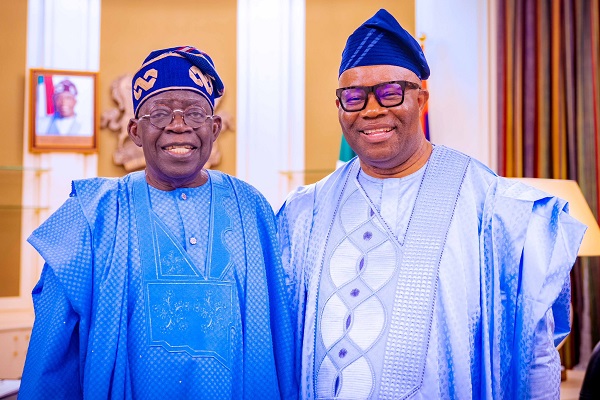BudgIT, a leading civic-tech organisation advocating transparency in Nigeria’s public finance, has uncovered 11,122 questionable projects worth N6.93 trillion inserted by the National Assembly into the 2025 budget.
The New Daily Prime reported that President Bola Tinubu, in December 2024, presented a budget of N49.7 trillion for the 2025 fiscal year to the National Assembly.
The budget was tagged “Budget of Restoration: Securing Peace, Rebuilding Prosperity.”
BudgIT, in a detailed analysis released on Tuesday and signed by Nancy Odimegwu, the organisation’s Senior Communications Associate, revealed a disturbing trend in which budget insertions—once isolated irregularities—have now evolved into an entrenched culture of abuse.
The organisation accused top-ranking lawmakers of turning the national budget into a vehicle for self-serving political interests.
READ ALSO: Uneasy calm over omission of Lagos-Calabar coastal road from 2025 budget
The report identified 238 projects, each valued above N5 billion and collectively worth N2.29 trillion, inserted with little to no justification.
Additionally, 984 projects amounting to N1.71 trillion and 1,119 projects within the N500 million to N1 billion range, totalling N641.38 billion, were indiscriminately included, raising serious concerns about their relevance and alignment with Nigeria’s development priorities.
“Rather than promote development, these insertions appear tailored to satisfy narrow political ambitions and personal enrichment,” BudgIT stated.
A breakdown of the insertions showed 3,573 projects worth N653.19 billion assigned to federal constituencies and 1,972 projects valued at N444.04 billion earmarked for senatorial districts.
Specific anomalies included 1,477 streetlight projects worth N393.29 billion; 538 boreholes totalling N114.53 billion; 2,122 ICT-related projects valued at N505.75 billion; and a puzzling N6.74 billion allocated to the ‘empowerment of traditional rulers.’

Shockingly, 39% of all insertions, 4,371 projects worth N1.72 trillion, were forced into the Ministry of Agriculture’s budget, inflating its capital allocation from N242.5 billion to N1.95 trillion.
The Ministries of Science and Technology and Budget and Economic Planning were also affected, with N994.98 billion and N1.1 trillion, respectively, added through similar insertions.
BudgIT raised alarms over the misuse of smaller agencies such as the Nigerian Building and Road Research Institute (Lagos) and the Federal Cooperative College, Oji River.
These agencies, the report said, lack the technical capacity to handle large-scale capital projects.
For example, the Oji River College—designed as a training institution, was allocated N3 billion for utility vehicles, N1.5 billion for rural electrification in Rivers State, and N1 billion for solar streetlights in Enugu State, all outside its statutory mandate.
Despite these revelations, the Presidency has remained silent.
BudgIT recalled that in 2024, it launched a campaign titled “The Budget is a Mess” and formally submitted its findings to the Presidency, Budget Office, and National Assembly.
While the letters were acknowledged, no institution has responded or taken responsibility.
Commenting on the findings, BudgIT’s Country Director, Gabriel Okeowo, warned that unchecked insertions are eroding public trust and undermining national planning.
“The insertion of over 11,000 projects worth N6.93 trillion into the 2025 budget is not just alarming—it is an assault on fiscal responsibility,” Okeowo said.
“This trend, now dangerously normalised, distorts development priorities and redirects scarce resources into the hands of political elites. Nigeria cannot afford to run a government of projects without purpose.”
BudgIT called on Tinubu to provide stronger executive leadership and reform the budgeting process to align with the Medium-Term National Development Plan (2021–2025).
READ ALSO: 2025 Budget: Typo error caused Lagos-Calabar highway omission – Umahi
It also urged the Attorney General of the Federation, Lateef Fagbemi to seek constitutional clarification from the Supreme Court on the extent of the National Assembly’s powers in introducing capital projects without executive input.
Furthermore, the organisation appealed to anti-corruption agencies—the EFCC and ICPC, to investigate and track these projects to ensure value for public funds.
BudgIT called on citizens, civil society organisations, the media, and the international development community to speak out.
“This is not merely about financial mismanagement,” the statement added.
“It is a matter of justice, equity, and the future of accountable governance in Nigeria. The 2025 budget must serve the interests of the Nigerian people—not a privileged few.”


